Profile
Donald Gwira: Martial arts legend, corporate communications giant

Mr. Donald Gwira might not need much introduction in corporate circles. He is an astute professional with solid background in Corporate Communication, Development, Advocacy and Project Management.
But this is not all that he is made of. He is a force to reckon with and cannot be underestimated in the art of self-defence as he holds fifth degree black belt in African Goju.



The Spectator recently interacted with the legend who has earned the title “Great Warrior” for his exceptional tactics and contribution to the sport in Ghana and abroad.
Exposure
Highlighting his progression through various forms of martial art, Mr. Gwira acknowledged the influence of his three siblings who were all well-versed in the sport.
According to him, the interest grew at age 12 following his exposure to Kunfu movies and had to study under his elder brother, Danny Gwira, in the early 70s at Adisadel College.
“When my brother left, I took over and started teaching [martial arts] in form two at Adisadel College. We organised martial art competitions, did a lot of demonstrations and started spreading martial arts in schools in Cape Coast,” he recalled.
After secondary school, he continued his education at American College in France (now American University of Paris) where he started a martial art institute before proceeding to Howard University in the United States of America (USA) for his Master’s Degree.
At Howard University, he again formed clubs and continued teaching and sharpening his skills until he returned to Ghana.
“I started with Taekwondo, moved on to Shotokan (Japanese form of martial art), and then to Chinese Goju and later migrated to African Goju, which was started by my brother,” he noted.
In 1979, young Donald obtained his first degree black belt and kept training until he secured his fifth degree black belt in 1995. He stopped teaching martial art in 1998 but continued to maintain regular exercise and fitness regime at home to enhance his health and physique.
“The more I trained, the better I became. At my age, I still keep fit; I do a lot of walks every day and I sometimes do sit ups and push ups at home or at the gym to stay active,” he said.
Achievement
The flying kick specialist set an unbeaten record in 1979 after jumping over 12 people to break a two-inch-thick tile at the Burma Camp when the Martial Art Institute did a demonstration for the Ghana Army.
That same year, he was crowned ‘Martial Artist of the Year’ and went ahead to be adjudged the ‘Best Kata’ and ‘Best Breaking’ in 1980 and 1981 respectively. ‘Kata’, he explained, “are a series of leg and hand movements that help one defend him or herself from more than one attacker.”
In 2010, he was named Life Patron and inducted into the Hall of Fame of the Martial Arts Institute for his ‘’outstanding and appreciable’’ contribution to African Goju in France, the USA and Ghana.
He and his three brothers, on separate occasions, were responsible for training the personal body guards of former Head of State, General Kutu Acheampong.
With over 40 years experience in the art, Mr. Gwira continues to attend karate and martial arts tournaments organised locally and looks forward to training more young people to accomplish more than he has achieved.
Corporate Experience
The fighter holds a Bachelor’s Degree in International Affairs from American University in Paris, and a Master’s in Political Science from Howard University, USA.
Currently an Independent Communications Consultant, he worked at Airtel Ghana, Guinness Ghana Breweries, International Agency for the Prevention of Blindness (IABP), among other organisations and served also on boards of some public institutions, including New Times Corporation, publishers of Ghanaian Times and The Spectator.
In 2017, he was named one of the ‘Most Impactful Corporate Social Responsibility (CSR) Leader’ while at Afriwave Telecom as Corporate Affairs Director.
He said the philosophies of martial art which became useful in aspects of his career, could be applied to personal and business endeavours, stressing that discipline, timeliness and preparation should guide young people in the corporate world.
“In martial art, you have to get your timing right; if you miss a split second, you get hit. When you transfer this into real life, it helps you to be more productive,” he said.
The powerhouse of martial arts, therefore, advocates that Martial Arts should be taught in basic schools while efforts be made to develop other forms of sport, apart from football.
Other Engagements
Mr. Gwira, from Elmina in the Central Region, is married to Mrs. Frances Gwira with four children. He is a member of the Agape Church at East Legon, Accra.
All his children, he said, had taken up one form of sport or the other with the youngest, a promising swimmer, aiming to win Gold for the Black Dolphins at future Olympics.
Admitting the rewards of martial art, he noted that those willing to take up the art should be ready to train everyday adding that progress depended on how fast one was able to learn the techniques.
Asked how long one must study martial art, he said: “There is no stopping; the only ingredient is to keep practising everyday.”
All things being equal, the 61-year-old would want to attain a Ninth Degree Black Belt in Martial Art.
By Ernest Nutsugah
Profile
ROFAC creating safer communities within Ada, Madina-Adenta enclave
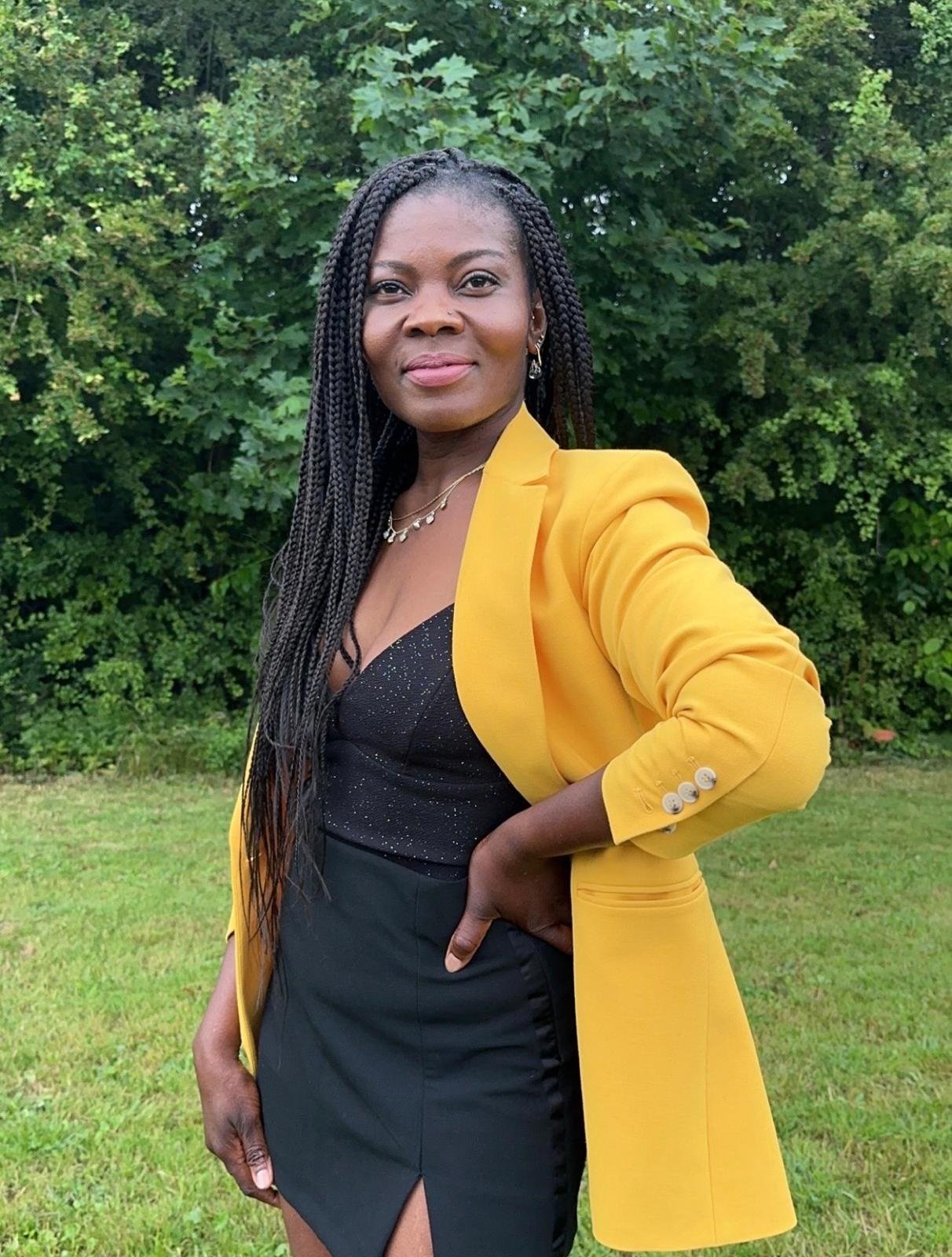
The infectious smiles and beaming grin on the faces of children is one of life’s greatest joys. It also has a way of brightening even the darkest days.
Most children have their smiles dimmed because their parents have no means of providing them with their basic needs and rights.
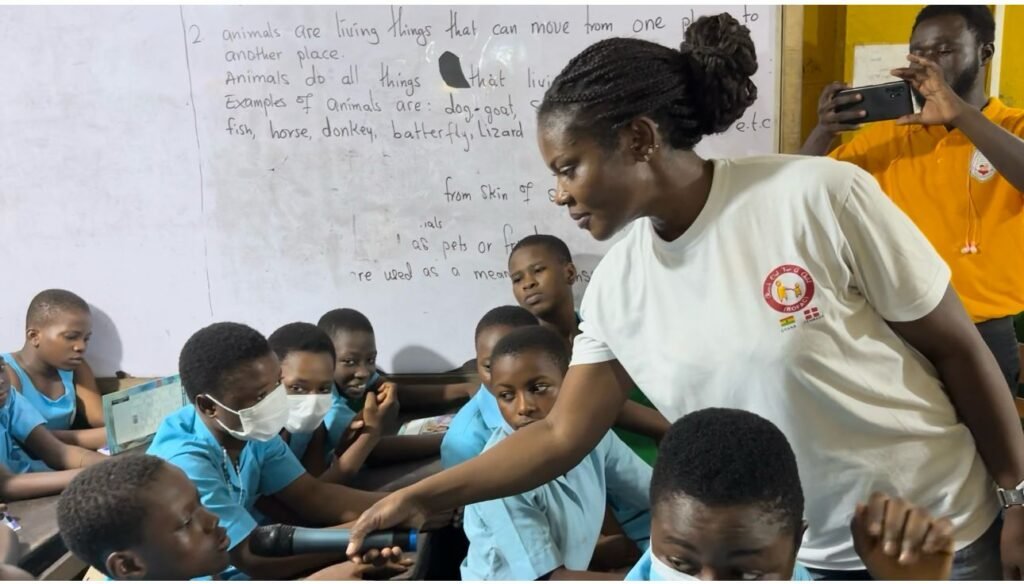
While some have lost their childhood to struggles of life, others have lost it to the cruelty of abuse, neglect and harsh realities of poverty.
Helping bridge the gap by putting smiles on faces of less privileged children, Reach out for a Child (ROFAC) is gradually becoming a household name in the Greater Accra Region, especially within the Ada and the Madina- Adenta enclave.
With the aim to improve education, healthcare, and facilities for the underprivileged group in Ghana, ROFAC believes that by improving school infrastructures, learning will be attractive to children, thus increasing attendance and providing a pleasant and safe learning environment.
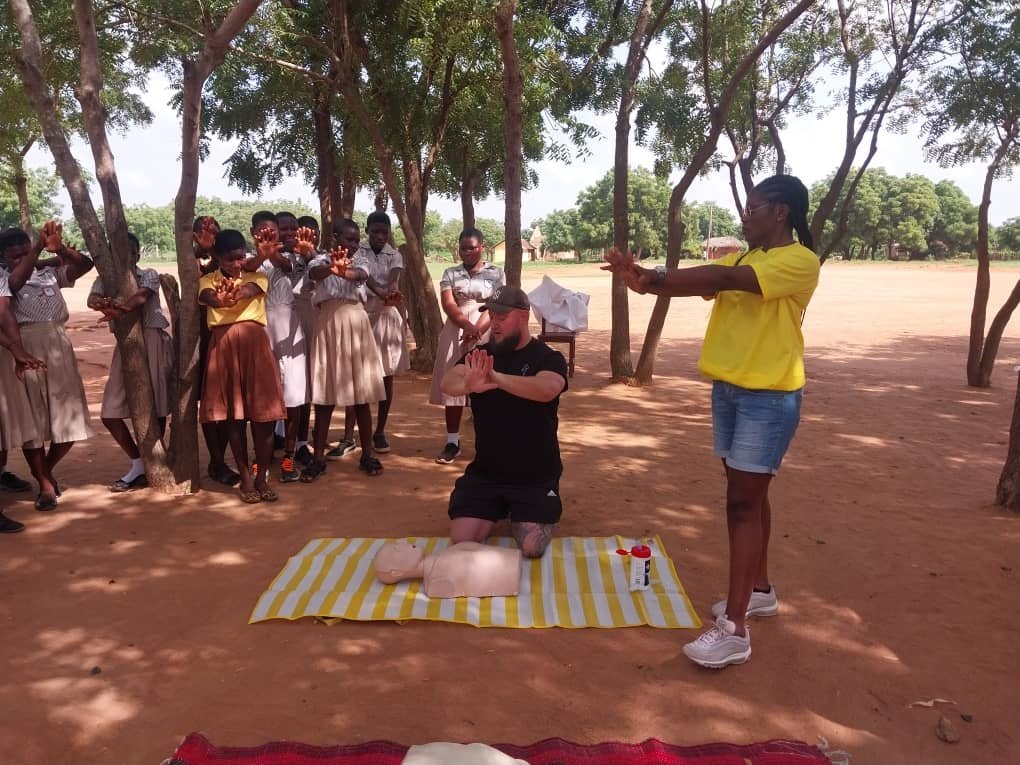
Yvonne Mawufemor Pedersen is an Acute & Emergency Care Nurse (RN, BSN), working in one of the first and largest super-hospitals in Denmark.
How it started
Life in Denmark is far from life in Ghana, where Yvonne grew up.
In 2008 while living in Denmark, Yvonne watched a “United Danish Appeal For Funds” program on television, raise funds to support third world countries, targeting all countries that appear on “The Organization For Economic Cooperation and Development” (OECD), list of third world countries, Ghana was on the list. The television program lit a fire of curiosity in me, but also a level of rage of helplessness.
Growing up in Ghana I knew of some of the challenges some children were subjected to, having to skip school to sell on the streets and in markets to help support the rest of the family. Some, runaways due to domestic violence and abuse. Inadequate infrastructure in most schools didn’t make school attractive either.
I have always had the drive of “Florence Nightingale” I wanted to do something. I wanted to contribute to shifting the narratives of the less privileged. These, and the television program I saw in 2008, contributed to a visit to Ghana, earlier than planned.
The Charity
Reach Out For A Child- (ROFAC) is a small Danish registered charity, started in 2009 by Yvonne Mawufemor Pedersen, a Ghanaian/Togolese resident in Denmark.
The charity was initially formed to raise funds for street children and head potters, after being inspired by a trip while visiting family in Ghana, and sourcing out how to shift the narratives of the above-mentioned group of people. As a result, ROFAC, Ghana was established in the same year, now our partner in Ghana.
Astonishingly, the original target funds were exceeded, and we decided to expand our support to single mothers. We started to raise funds to support the target group, meeting them in the rural areas before their migration to the capital.
As our understanding of rural communities in Ghana grew, so did the scope of our projects, because we understand, there are many factors that contribute to getting a child off the streets and into a classroom, therefore we expanded further to supporting hospitals and schools in rural Accra with teaching aids, hospital equipment’s and giving health education.
As well as lessons in first aid and CPR. This not only includes knowledge to our direct beneficiaries alone, but also that of their families and wider community.
We also, in partnership with our local partners, tailor internship programs for nursing students from Denmark to Ghana.
Our project and since 2009, ROFAC has helped many families in various communities through our numerous projects, and we are determined to ensure that this continues despite challenging circumstances we sometimes encounter.
Through her initiative, ROFAC has over the years, donated school furniture and writing boards for teachers and pupils at the Nuhalenya D/A Primary School in the Ada district, explaining that the organisation has been part of the growing process of the school since the year 2018 for which the head teacher, Mr Narh, together with teachers and some opinion leaders had always expressed their gratitude to the team.

School practicing how to resuscitate
Speaking to The Spectator in Accra last Thursday, Ms Pedersen said the organisation has also begun teaching Cardiopulmonary Resuscitation (CPR) in some basic schools, including Nuhanenya in Ada District and Pauline Queensland schools at Agbogbloshie in the Greater Accra Region to equip young learners with essential skills that can help save lives during cardiac emergencies.
CPR is a lifesaving emergency procedure performed when the heart stops beating.
Introducing the CPR programme in the basic schools, she indicated would not only empower the children with practical knowledge but also promote a culture of safety and responsibility.
In this cause, ROFAC has been advocating the subject matter to teach students the basic steps of CPR, including chest compressions and rescue breaths.
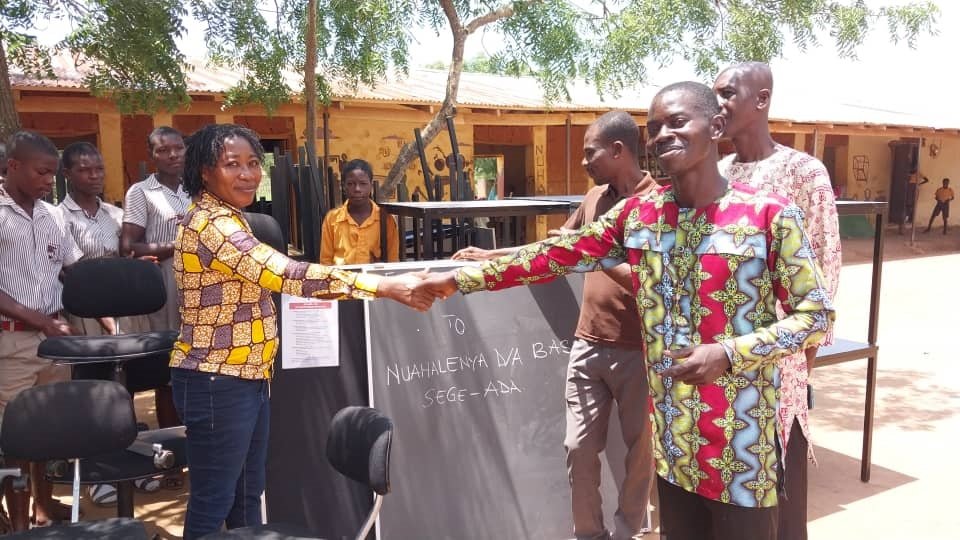
She mentioned that to educate children on recognising emergencies and the importance of seeking adult help will increase awareness of heart health.
As part of the safety measures, ROFAC has also introduce the idea of using child friendly mannequins for the learners to practice chest compressions and breathing techniques under the guidance of medical trainers.
The programme, she said, emphasises on safety, including how to avoid panic and handle emergency situations calmly. The schedule for subsequent teaching children CPR will potentially assist in saving lives within their families and communities.
“Implementing a CPR programme in basic schools is a valuable investment in public health and safety. It empowers students with essential life-saving skills and fosters a sense of responsibility and confidence. By integrating CPR education into the curriculum, schools contribute to building safer communities,” she explained.
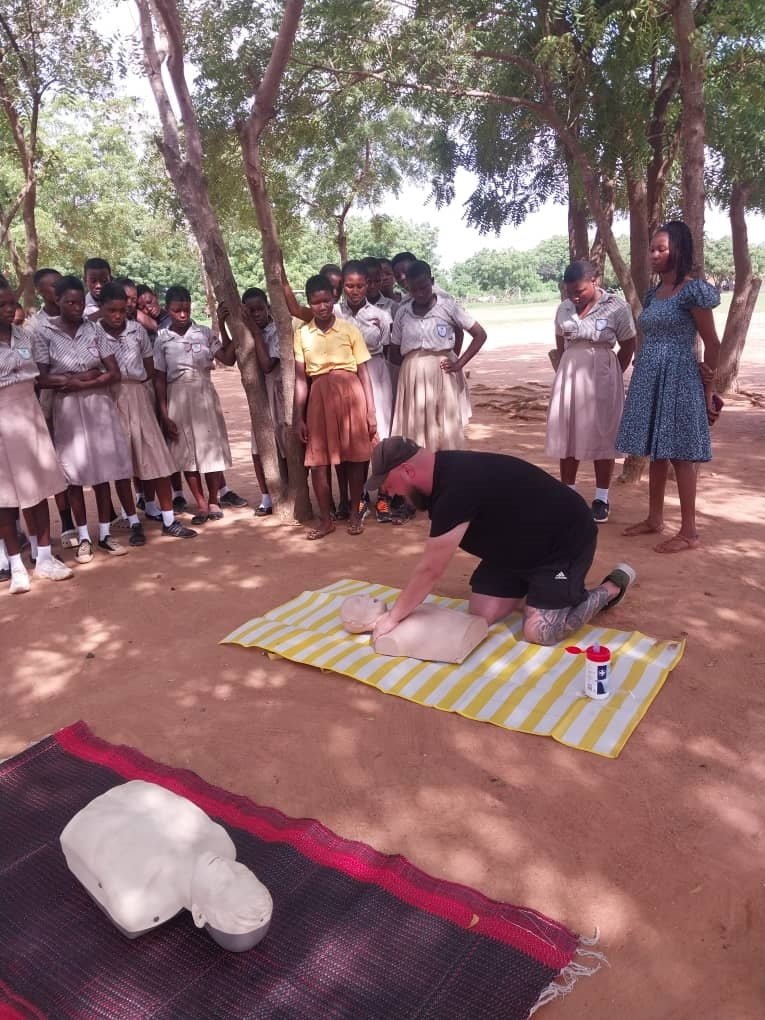
Ms Pedersen further indicated that the programme not only prepares children to respond to emergencies but also cultivates a generation of informed and proactive individuals.
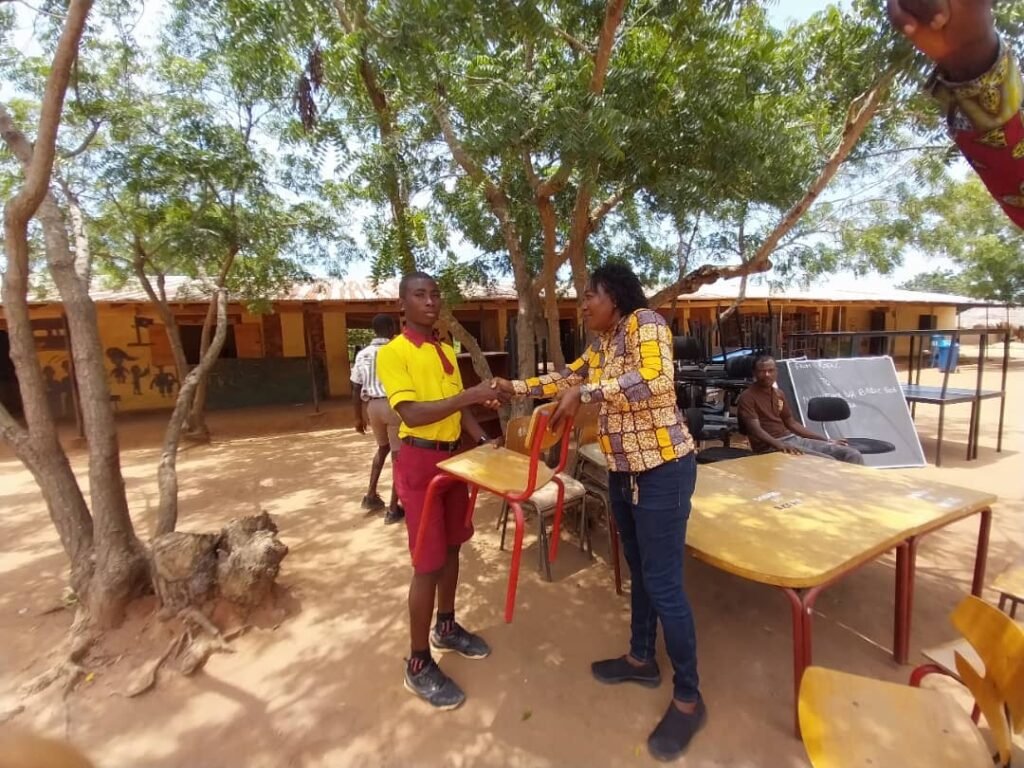
ROFAC also embarked on another project by donating a laboratory incubator to the Duala Medical Clinic based at Burma Camp in Accra.
This follows a request made by the medical doctor in charge, Dr Awura Adjoa Nunoo, for the equipment for services at the facility.
By Lawrence Vomafa-Akpalu
Profile
From passion to plate: Chichi Yakubu’s culinary journey
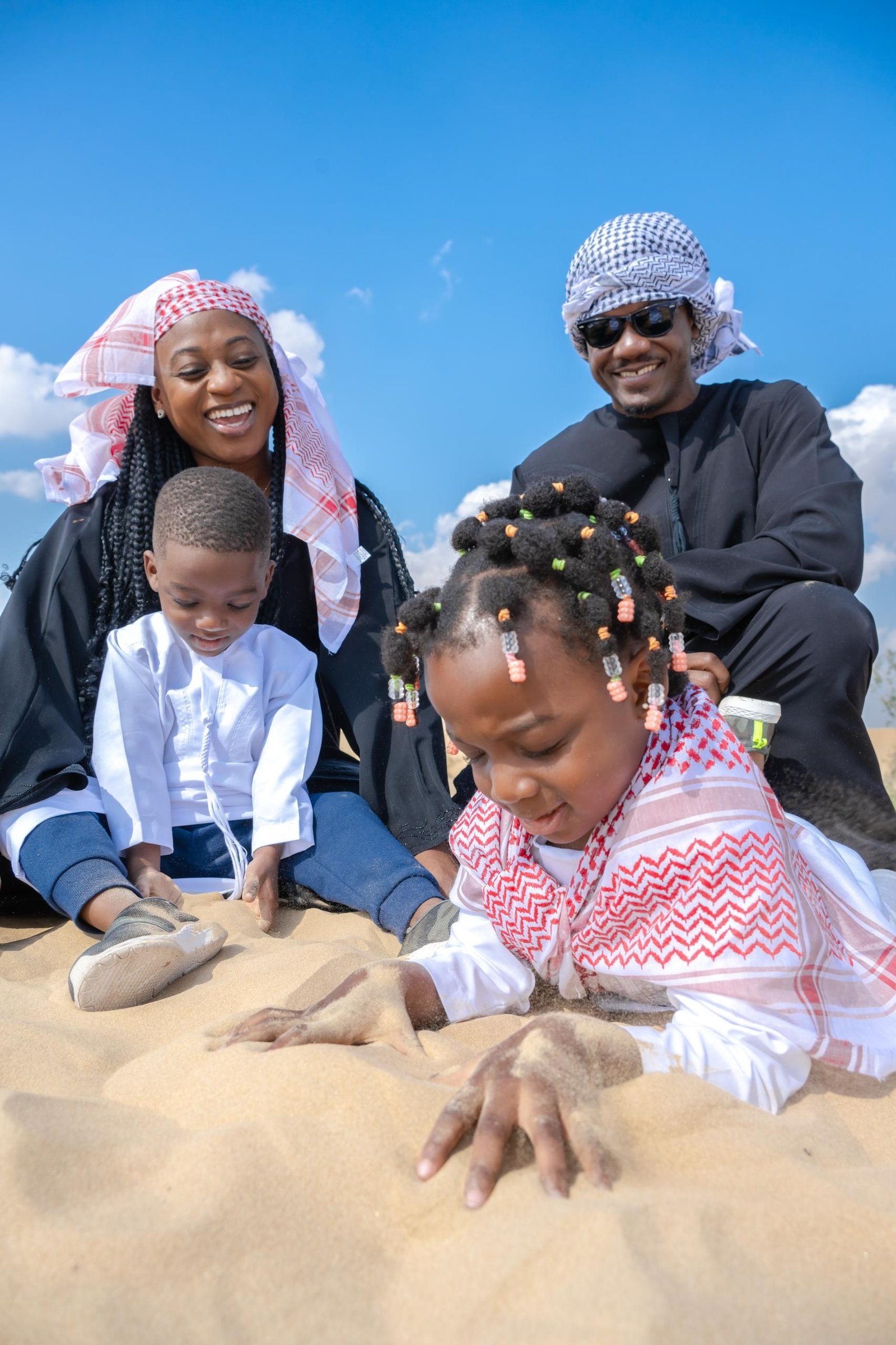
Driven by her personal weight loss journey and passion for healthy eating, Chichi Yakubu has carved a niche for herself in the culinary industry.
Her dedication and commitment has turned her business, NyoNyo Essentials, to one of Ghana’s most sought-after catering companies in the country.
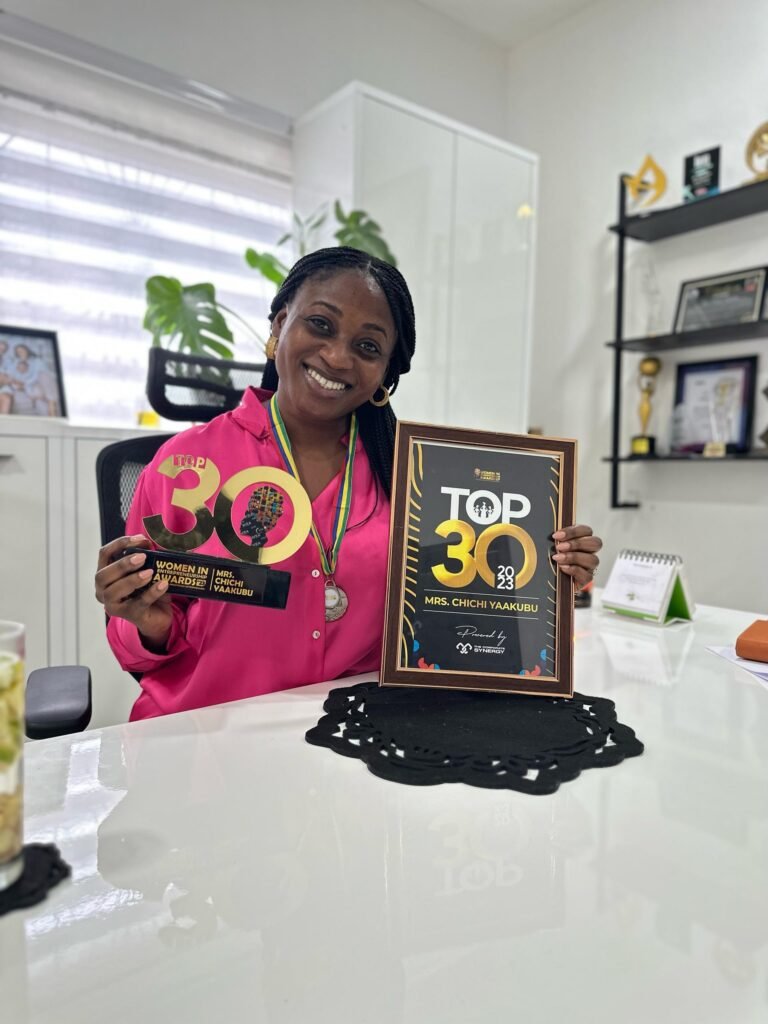
Born to a Nigerian father and a Ghanaian mother, Chichi grew up in a family of passionate women at Mamprobi Polytechnic.
Her mother, an avid cook, started a small catering business, which Chichi helped manage during vacations.
“From upper primary through to Junior High School, I will close from school to go and help my mother at her small food stand at Sakaman to do the dishes after her customers had eaten.
Her mother was known for her special dough Banku with Okro soup. Her small food joint expanded to become a chop bar where she worked at when on vacations.
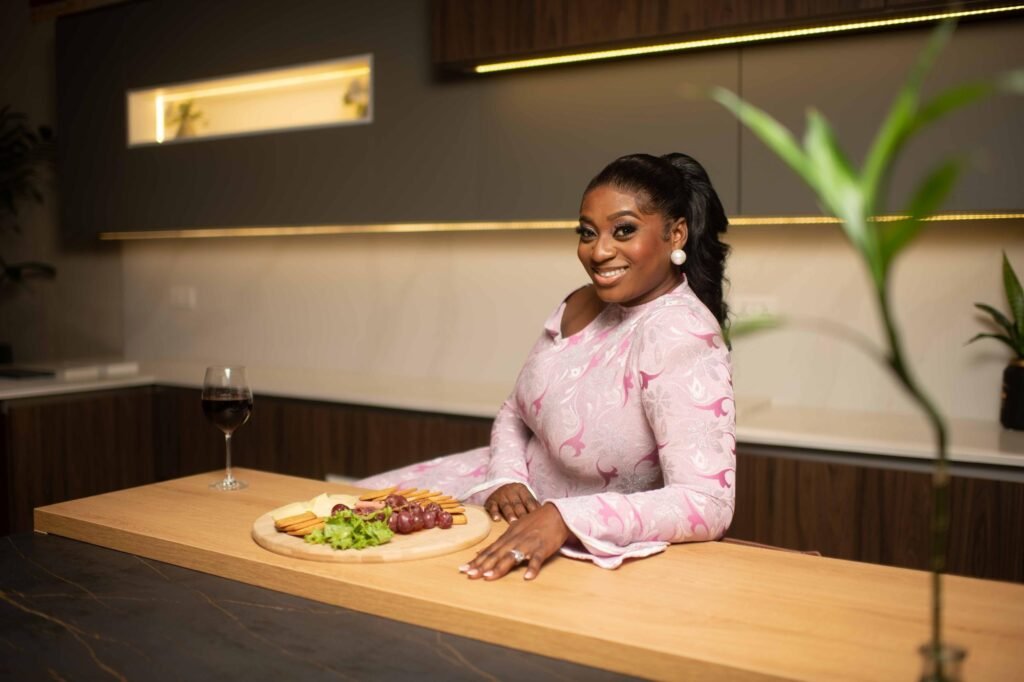
She acknowledged that, “this early exposure to entrepreneurship sparked my interest in the culinary industry.”
After her university education, Chichi embarked on a weight loss journey, which led her to explore the culinary side of things.
According to Chichi, her weight loss journey began after she realised in her late teens her family struggle with weight.
“I wasn’t going to just allow it but someway, somehow, I started gaining so much weight in my early twenties and I decided to take action by changing my lifestyle by eating healthy and exercising. That’s what got me interested in meal prepping which eventually became my side hustle,” she narrated.
Chichi later discovered the business potential of healthy food and decided to pursue it. Also her friends were curious about her weight loss strategies, which inspired her to offer meal-prep services at a fee.
With a bold vision and determination, Chichi started small, offering sandwiches, salads, and smoothies.
Leveraging social media marketing, she reached a wider audience and grew her business rapidly.
Today, Chichi is the Chief Executive Officer of Nyonyo Essential, a business that has expanded to cater for weddings, parties, and corporate events with her team providing excellent service, and word-of-mouth referrals have helped her expand her client base.
Again, Chichi has also opened kitchen centres in selected areas, providing healthy food options to Ghanaians.

She mentioned that, her mother has been her number one supporter saying “she had the blue print handed down to me. I started my business in her kitchen, and she also spared me some of her workers when the new people I had hired didn’t show up.
“My then boyfriend and now husband believed in me even when I was not sure to do it full time as I was in corporate Ghana and not doing bad.”
Chichi said one of her biggest challenges was staff retention, adding that she was of the opinion that the work itself was not much of a challenge but the people.
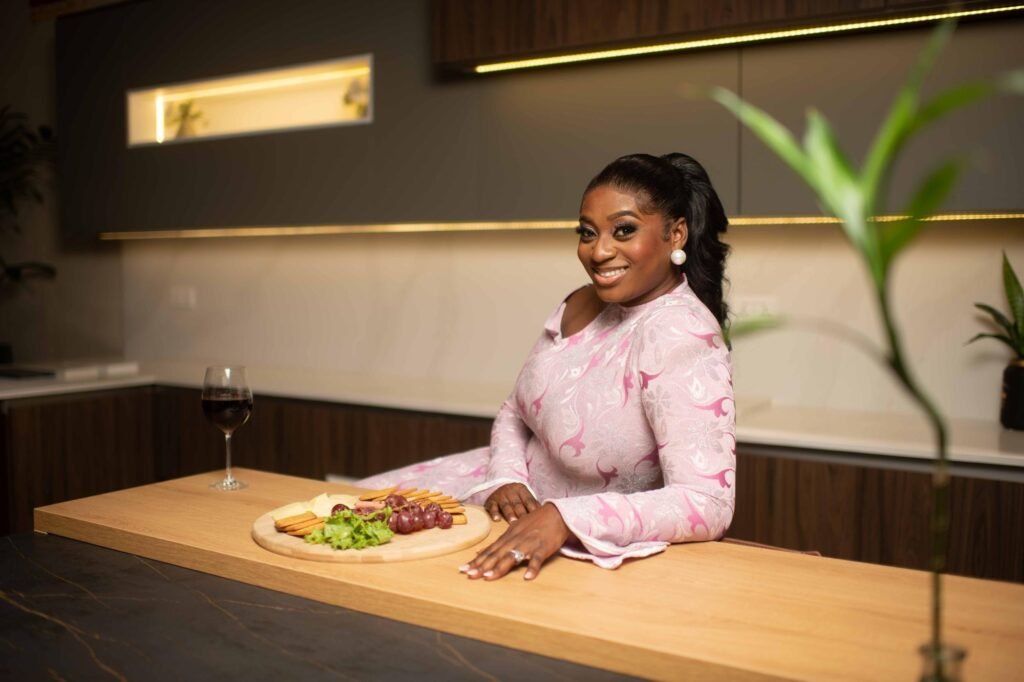
The other thing was stereotyping, saying that, “some years back people look down on food business operators, we were not regarded as professionals with others assuming we are school dropouts or just people who don’t know what we are about.”
But I was determined to change that narrative by handling work with the outmost professionalism, which I have since the beginning of my weight loss journey in 2014.
Chichi is motivated by her faith in Christ, her passion for entrepreneurship, and her commitment to empowering women.
As a wife, mother, and business owner, she strives to create a balance that reflects her vision of an all-rounded woman.
In business, she emphasised, her drive comes from a deep love for the hospitality industry and a desire to help others succeed through the business of catering by NyoNyo, saying that, “My belief that Jesus is Lord guides my decisions, ensuring that integrity, excellence, and purpose shape both my life and business.”
She urged young people, especially young women, who are just starting out in their careers or entrepreneurial journeys to believe in themselves, trust God’s timing, and be willing to put in the work.
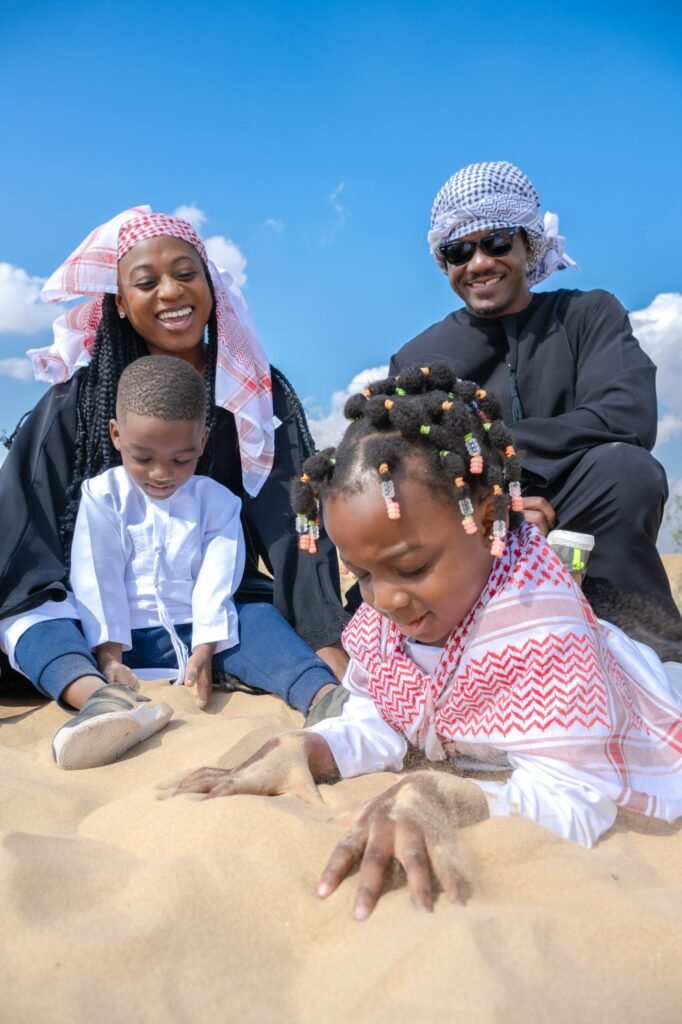
Moreover, she said “success does not happen overnight, so stay consistent, be patient, and keep learning. Surround yourself with the right people, mentors, peers, and a support system that challenges and encourages you.”
“Opportunities don’t pause for perfection. While we overthink, others take action. Start where you are, with what you have. The world moves fast—so should we,” – Chichi Yakubu advised
She again added that women should embrace their multifaceted roles without guilt saying “you can be an entrepreneur, a wife, a mother, and a sister’s keeper all at once. Most importantly, stay true to your values and never compromise on integrity. Let your journey reflect both purpose and excellence.”

Chicihi loves to spend quality time away from the noise of life in new places or go on an adventure with her family and friends.
She is a product of Christian home school, Okuapeman secondary, Central University College and Harvard University.
By Jemima Esinam Kuatsinu







